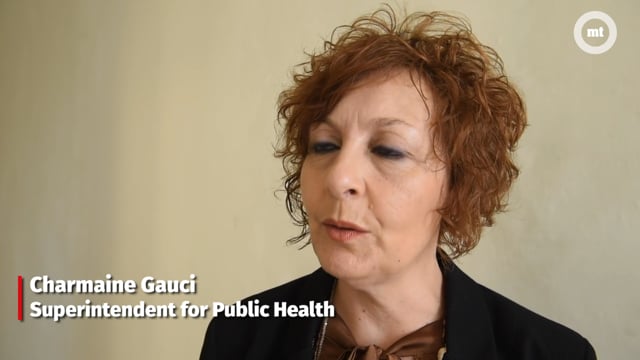[WATCH] Doctors urge vaccination after sharp rise in measles cases
From five cases in 2018, the current year has already seen 15 reported cases


The number of reported cases of the measles virus in Malta has increased significantly over the past 12 months, with 15 cases reported so far in 2019, Superintendent for Public Health Charmaine Gauci said on Friday.
She was speaking at the launch of European Immunization Week, a campaign held across Europe to raise awareness about the importance of vaccination, where she said that despite the increase, there was still no cause for panic.
“Anti-vaccine lobby groups have lead to hesitance on the part of the public, which has in turn contributed to the 87,000 reported cases and 72 deaths across 42 countries.”
Despite this, she said that Malta had remained relatively unaffected by the global trend, with the virus retaining its ‘eliminated’ status according to the World Health Organisation.
The 15 cases reported so far represent a significant increase from the five reported cases in 2018, four of which were imported. The other was transmitted from one of the imported cases.
Of the 15 cases that have been reported so far in 2019, Gauci said that 13 were adults aged between 23 and 45 years, with the remaining being children.
Gauci added that seven required hospitalisation, and had since been threated and discharged.
“Symptoms of measles, can often be confused with the common cold, however defining symptoms of measles are sore red eyes and a typical flat rash that starts from the head and works its way down,” Gauci said, adding that patients may also experience “grey white spots on the inside of the mouth”.
Measles is highly contagious, and transmitted through the air. It can be caught before the rash begins to manifest and four days from when the rash first appears, Gauci said. “Most people who transmit measles don’t even know they have it themselves,” she said.
Gauci explained that the MMR vaccine is vital in preventing the virus from spreading. The vaccine is normally administered in two doses, with the first guaranteeing 93% immunization, which is bumped up to 97% upon administration of the second dose.
Of particular concern to the department of health are individuals born after 1970, especially 1983.
“The 80s, marked the beginning of the anti-vaccine movement we know today, meaning unfortunately that many people between the ages of 25 and 45 are not immunized and are at risk of measles which can have various long-lasting complications in adulthood,” Gauci said.
The department is encouraging anyone between those ages who is unsure about whether they are vaccinated, to request the vaccine since there is no danger in being given it twice. “Herd immunity, which protects the most vulnerable in our society, requires a 95% immunisation rate to take into effect. Without it, people who are unable to get the vaccine due to low immune systems will suffer greatly.”
Anyone born after 1983 is entitled to the vaccine free of charge, Gauci said.
Michael Borg, a consultant at the infectious disease control unit, appealed for the public to remain out of public areas if they have any suspicion that they might have the virus. He said that posters with information about measles will be put up at the entrance to Mater Dei Hospital, along with masks for people who think they might have measles symptoms to wear before they enter the building.
Borg warned that people are understating measles because it’s been eliminated, and many might have never seen the virus in action. He recalled a case in the 1980s of a child who was gravely ill due to having measles, and a brain infection. “The cases we’ve seen haven’t been serious, but in adults, they almost always end up in the hospital. It can attack the lungs. The belief that measles is harmless, and that the vaccine is worse, comes from people who have never seen the case first hand.”






.jpg)
















